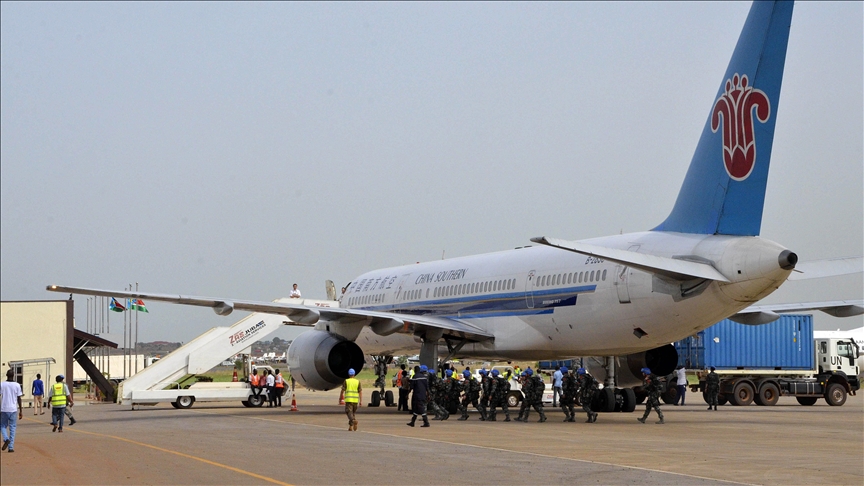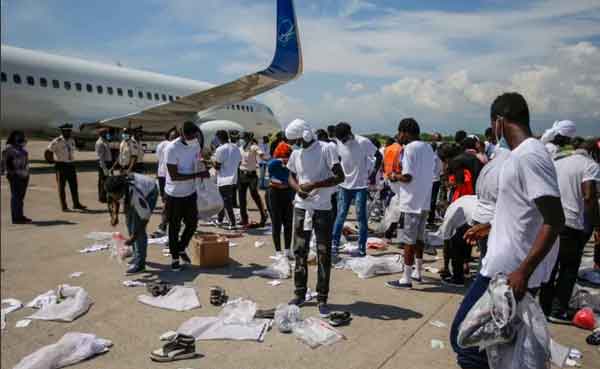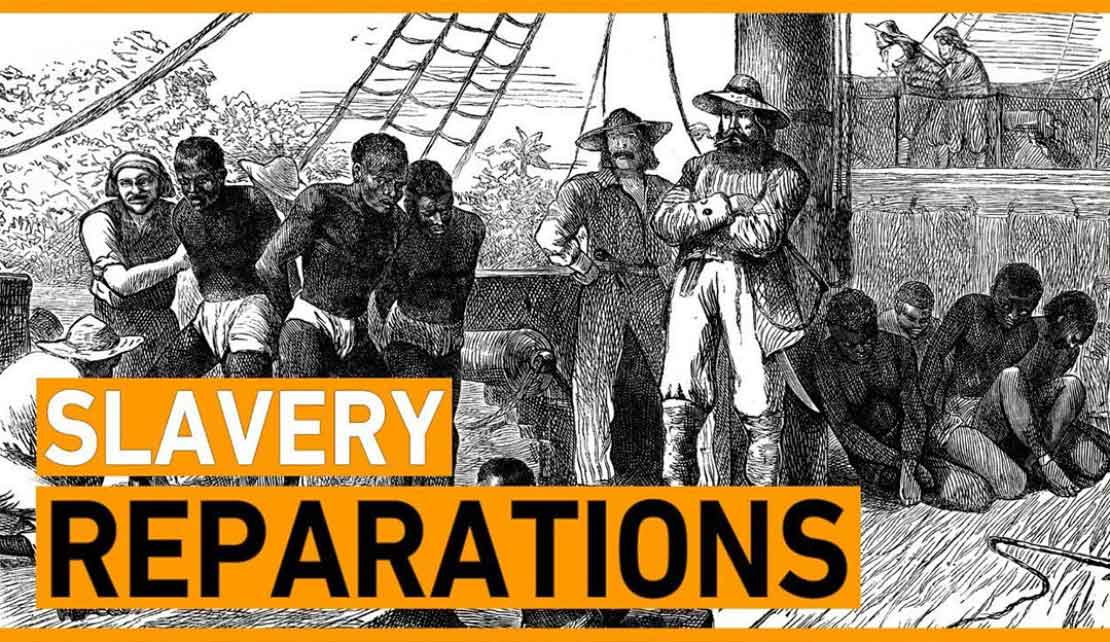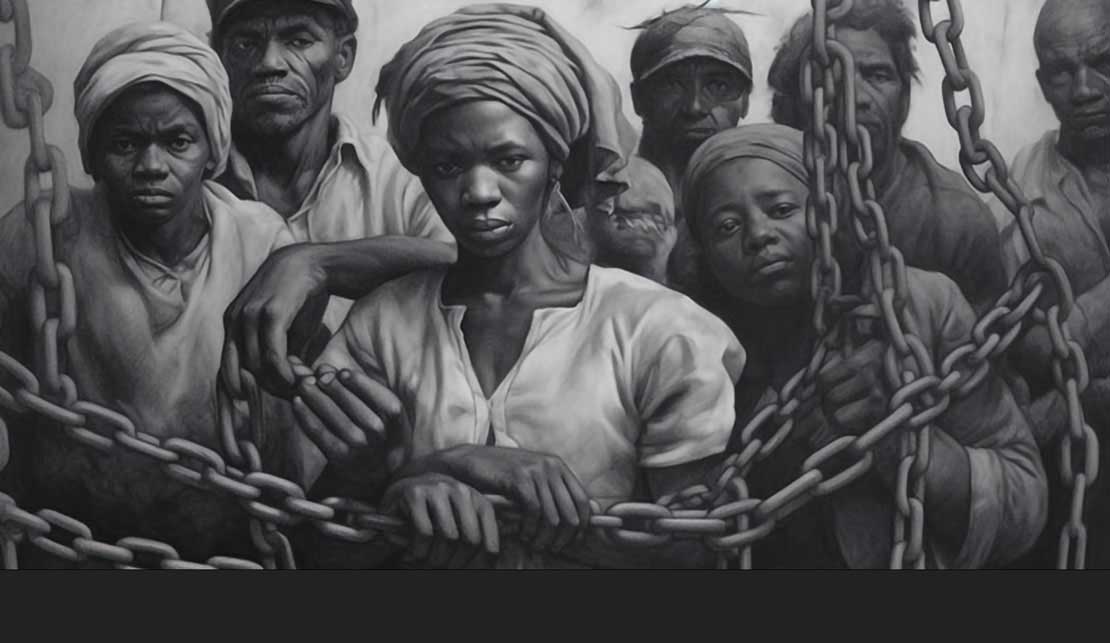CARIBBEAN | Trump's African 'Solution' Resurrects America's Oldest Racial Nightmare - Slavery

MONTEGO BAY, July 16, 2025 - In the searing heat of Djibouti, eight men languish in a converted shipping container at a U.S. military base, their feet shackled, their bodies sick from malaria and extreme temperatures exceeding 100 degrees Fahrenheit.
These deportees—from Cuba, Vietnam, Myanmar, Laos, and Mexico—were told they were being transferred to Louisiana, only to wake up thousands of miles away in East Africa, held in what one advocacy group calls "heinous and enraging" conditions.
This scene from 2025 carries the stench of a much older American obsession. More than 160 years ago, Abraham Lincoln championed his own "back-to-Africa" solution, declaring: "I can hardly believe that the South and North can live in peace, unless we can get rid of the negroes."
What Lincoln couldn't accomplish through voluntary colonization, the Trump administration is achieving through brute force: the systematic removal of people of color to African nations where they have no ties, no language, and crucially, no protection from American oversight.
The deportation flights to South Sudan, Eswatini, and other African nations represent more than immigration enforcement. They constitute the resurrection of America's oldest racial nightmare: the belief that the presence of Black and Brown bodies is fundamentally incompatible with white American prosperity, and that the solution lies not in justice, but in removal.
The Modern Machinery

These are not abstract statistics; they represent diaspora communities with deep American roots, families who have built lives across generations, workers who have sustained entire industries.
Yet while European nationals typically face deportation to countries with functioning asylum systems and international oversight, Caribbean and Latin American deportees increasingly find themselves shipped to conflict zones in Africa.
The most recent flight sent five men—from Vietnam, Jamaica, Laos, Cuba, and Yemen—to Eswatini, a small landlocked nation in southern Africa where they have no connections, no support systems, and no legal protections.
The conditions of this forced displacement are deliberately brutal. The eight men held in Djibouti were confined in a converted shipping container that officials admit is "not equipped nor suitable for detention of any length," with temperatures regularly exceeding 100 degrees, limited access to food and water, and the constant threat of rocket attacks from nearby Yemen.
These are not the accommodations of a justice system; they are the tools of a punishment regime designed to break spirits and deter resistance.
The choice of Africa as a dumping ground is not coincidental. As immigration attorney Anwen Hughes notes, "I've been doing immigration detention work for a very long time. I've never in my life seen Mexico refuse to take back one of its nationals, ever."
The Trump administration's insistence on shipping Mexican nationals to South Sudan—a nation wracked by civil war—rather than across the Texas border reveals the true purpose: to inflict maximum suffering while eliminating any possibility of return.
The Profit Matrix
Behind the humanitarian crisis lies a carefully constructed profit machine. Congress has allocated $45 billion over four years for immigration detention—more than the Obama, Biden, and first Trump administrations combined—with the explicit goal of doubling detention capacity to 100,000 beds.
This represents the largest expansion of the American carceral state in history, with private prison contractors like GEO Group and CoreCivic positioned to reap unprecedented profits from human warehousing.
The international dimension adds another layer of commodification. The U.S. government has already paid approximately $5 million to El Salvador to accept American deportees, establishing a market where governments can profit from accepting unwanted populations.
The Trump administration has actively courted African nations for these arrangements, with recent White House meetings featuring discussions with leaders from Liberia, Senegal, Guinea-Bissau, Mauritania, and Gabon about accepting "third-country nationals."
While Nigerian Foreign Minister Yussuf Tuggar declared that his country would not "bow to pressure" to accept such deportees, others appear more willing to trade human dignity for American favor.
The economics are clear: financially desperate nations can earn goodwill and cash by accepting American castaways, while private contractors profit from expanded detention, and the U.S. government eliminates its legal obligations to monitor the welfare of transferred prisoners. It's a perfect circle of exploitation, with human beings as the commodity being traded.
Legal Abandonment by Design

The genius of the third-country solution lies in how it weaponizes legal technicalities to achieve ethnic cleansing with plausible deniability. An internal ICE memo reveals officers can "immediately" start sending immigrants to "alternative" countries with "as little as six hours' notice," even to nations that haven't provided "diplomatic assurances" that migrants will be safe.
Once transferred, these individuals effectively disappear from American legal protection—the U.S. has no obligation to monitor their treatment or address abuse. As one deportee advocate notes, this creates a system where the government can claim it's not responsible for torture or death because technically, the abuse happens on foreign soil.
The parallels to extraordinary rendition are unmistakable—except this time, the CIA's black sites have been replaced with entire nations willing to serve as dumping grounds for America's unwanted populations.
The Caribbean Crucible
For Caribbean communities, this policy represents a particular betrayal. The region's diaspora has been integral to American development for generations, yet their limited diplomatic leverage makes them easier targets for removal.
Jamaica has been classified as "at risk for non-compliance" with deportation orders, while Cuba remains officially "uncooperative"—classifications that make their nationals prime candidates for third-country disposal. This creates a perverse situation where the more a nation protects its citizens from unwanted deportation, the more likely those citizens are to be shipped to war zones.
The historical resonance cuts deep. Caribbean peoples have experienced forced displacement before—through slavery, through colonial labor schemes, through economic pressure. Now they face a new iteration: administrative deportation to African nations as punishment for America's refusal to honor their contributions and humanity.
The Slavery Continuum
 The thread connecting Lincoln's colonization schemes to Trump's African solution runs unbroken through American history. In the 1850s, white Americans North and South agreed that freed slaves were "perpetual foreigners" who could never be fully American.
The thread connecting Lincoln's colonization schemes to Trump's African solution runs unbroken through American history. In the 1850s, white Americans North and South agreed that freed slaves were "perpetual foreigners" who could never be fully American.
The solution then, as now, was removal: "export them all to some fertile country" rather than grapple with the implications of equality.
What makes this policy particularly obscene is its timing. Across the Caribbean and throughout American cities, descendants of enslaved Africans are finally organizing serious reparations movements, demanding acknowledgment and compensation for the centuries of unpaid labor that built Western wealth.
From CARICOM's formal reparations commission to grassroots organizing in American cities, Black communities are asserting their right to justice for the foundational crime of slavery.
The Trump administration's response? Mass deportation to Africa under the guise of immigration enforcement. Rather than face the moral and financial reckoning that reparations would require, the system has found a new mechanism to achieve the same old goal: the removal of Black and Brown bodies from spaces where they might demand justice.
This is not coincidence but calculated cruelty. As Caribbean nationals organize for reparations from former colonial powers, they find themselves shipped to African conflict zones. As American-born descendants of slavery gain political power and press for compensation, the definition of "deportable" expands to capture anyone who can be disappeared through bureaucratic manipulation.
 What we're witnessing is not merely immigration enforcement but the latest iteration of America's persistent fantasy that racial problems can be solved through racial removal. The third-country deportation policy allows the nation to dispose of inconvenient populations while maintaining the fiction of colorblind law enforcement.
What we're witnessing is not merely immigration enforcement but the latest iteration of America's persistent fantasy that racial problems can be solved through racial removal. The third-country deportation policy allows the nation to dispose of inconvenient populations while maintaining the fiction of colorblind law enforcement.
The systematic shipping of people of color to African nations—regardless of their actual origins—reveals the underlying logic: these are not really deportations but banishments. The goal is not to return people to their homelands but to remove them from American space entirely, to places where their suffering becomes invisible and their survival someone else's problem.
As South Sudanese civil society leader Edmund Yakani declared, "South Sudan is not a dumping ground for criminals." But that's exactly what it has become—a place where America can dispose of human beings it has deemed unworthy of continued existence within its borders.
This is the bitter truth about Trump's African solution: it represents the bureaucratization of an old American dream—a white nation finally rid of its inconvenient populations of color, with the dirty work of disposal outsourced to distant shores where the screams cannot be heard and the deaths cannot be counted.
The timing reveals the deeper agenda: as reparations movements gather strength and Black communities demand justice for centuries of stolen labor, the response is not compensation but deportation, not acknowledgment but disappearance.
The shipping containers in Djibouti are more than detention facilities. They are monuments to America's oldest and most enduring form of violence: the belief that Black and Brown bodies are problems to be solved through removal rather than human beings deserving of dignity, justice, and the reparations they have earned through blood, sweat, and generations of unpaid labor that built the very wealth now being used to fund their deportation.
This investigation reveals how administrative policies can resurrect the most brutal impulses of American racial history under the cover of immigration enforcement. The third-country deportation program represents not just a violation of international law, but a fundamental betrayal of the principles that diaspora communities believed they could count on in their adopted homeland.
-30-
